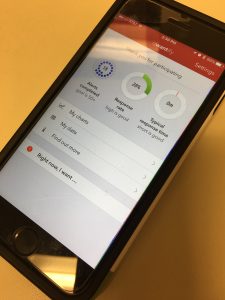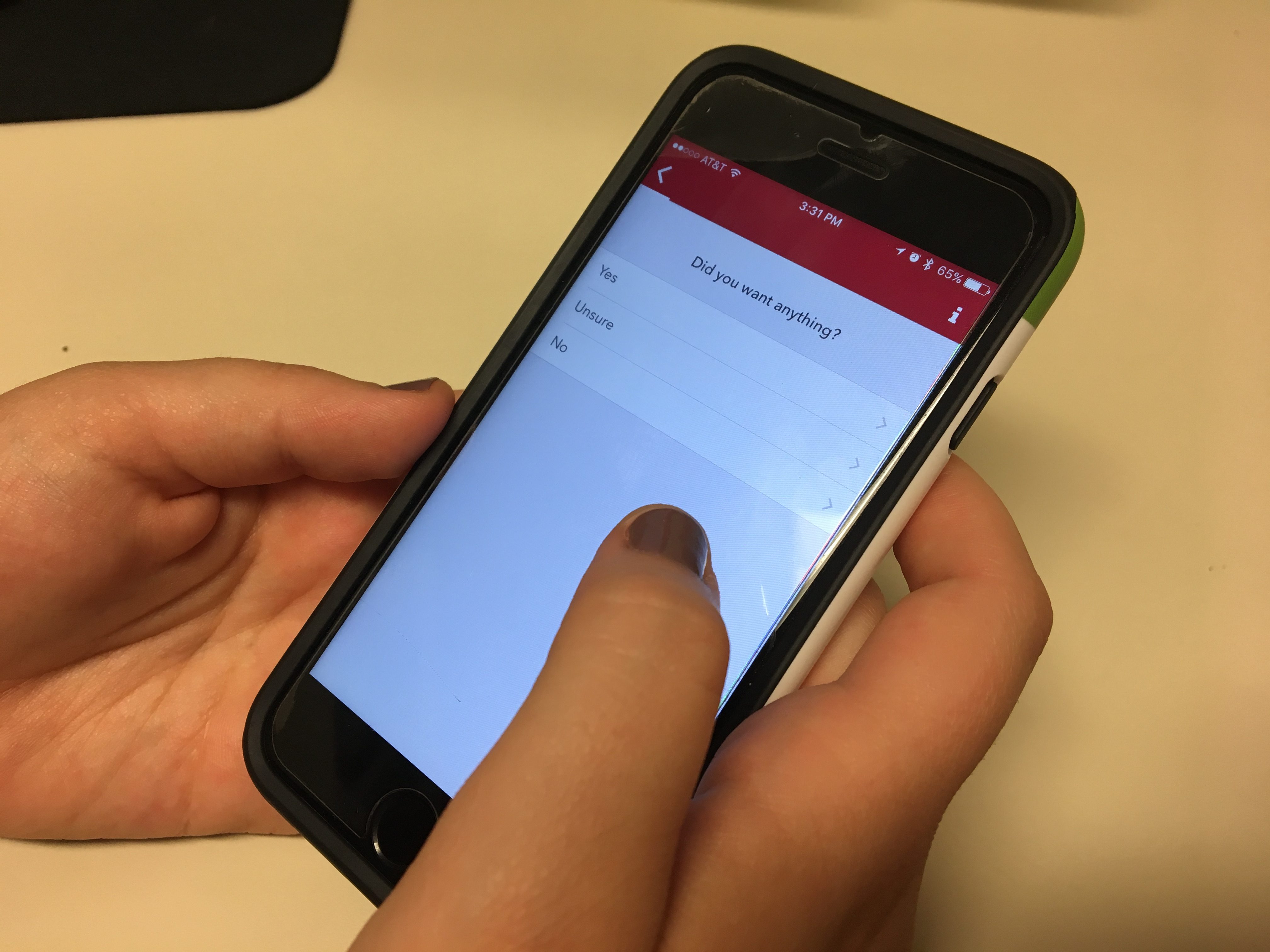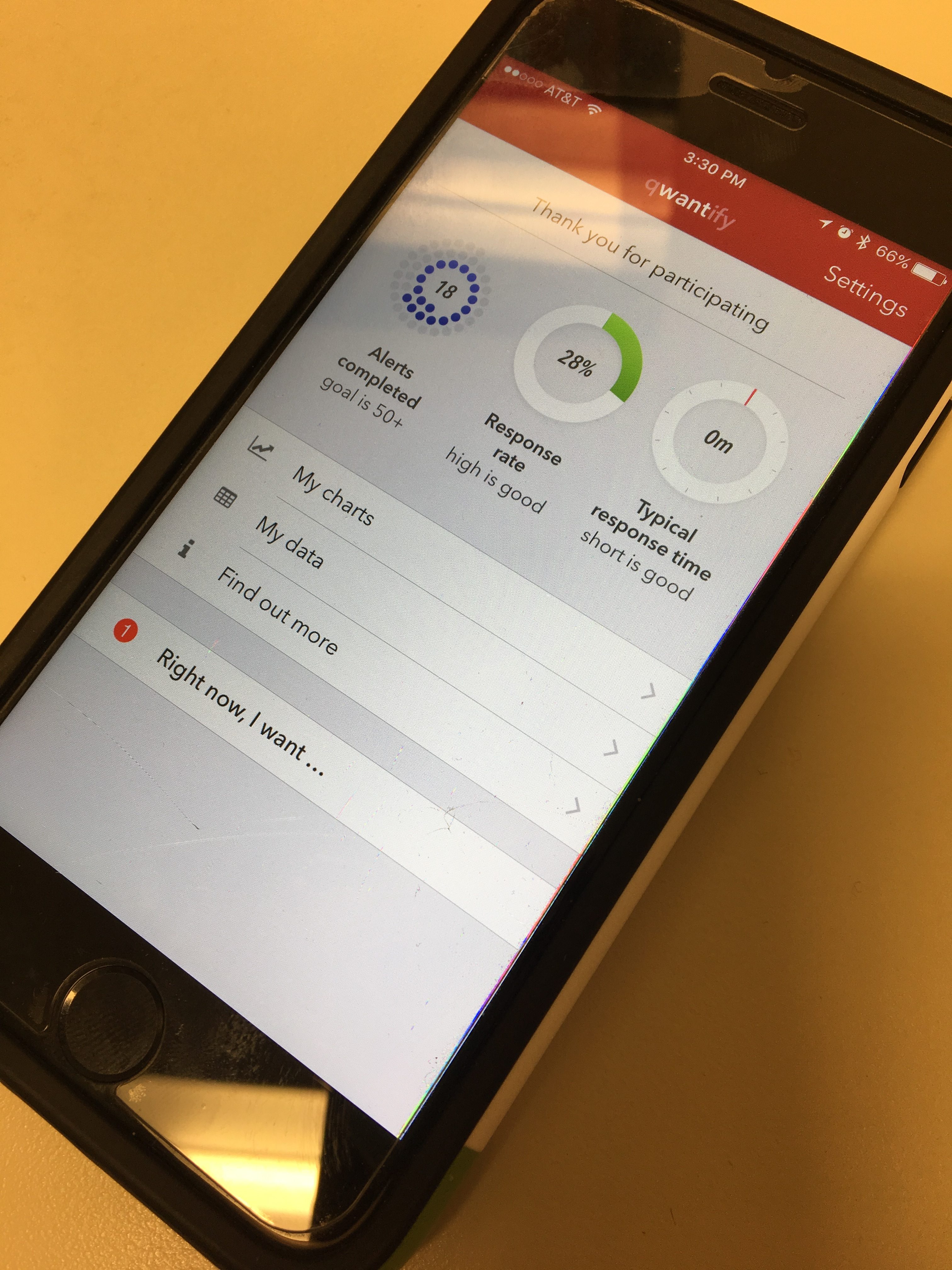By Sage Wesenberg, Biochemistry and Journalism, 2019
In this exact moment, what do you want?
Take a minute, think about how your day is going. Are you hungry and want a snack or tired and want a coffee? Or maybe there’s something deeper on your mind – you want a meeting to go well, or want to spend time with a friend.
Whatever it is, it’s likely not often that you actually sit down and think about the things you want and how they impact your happiness.
Northeastern Postdoctoral Research Associate Paul Condon, Distinguished University Professor Lisa Feldman Barrett and the Interdisciplinary Affective Science Lab, University of Wisconsin, Madison Associate Scientist Christy Wilson-Mendenhall, and Mind and Life Institute Science Director Wendy Hasenkamp, have worked as a team to develop the Qwantify app to help you reflect on this exact idea.
Simultaneously, participation on the app contributes large quantities of data to their research on understanding the varieties of different desires seen in society and the relationships between these desires and positive or negative health outcomes. While previous research has looked at desire in a limited lens of biological desires, their research focuses more on the non-traditional connections to desire like social bonds, achievements, and good health.
Simply put, when does desire hurt people, and when does it help people?
This unique focus came from enthusiasm on the intersections between meditative traditions with science to help people understand how mindfulness or compassion training programs could help people have better social relationships. Through the mutual interests between the team composed of Condon, Wilson-Mendenhall, the Mind and Life Institute, and the IAS Lab, this project was born.
For a user, the Qwantify app sends several alerts a day asking “what do you want right now?” Upon entering the app, the user has the opportunity to answer this question open-endedly, typing anything they are desiring. Then, it asks a series of related questions including how intensely you wanted something, what emotions you were feeling at that moment, what was going on around you, and more. As you progress through more alerts, charts are created analyzing your data points such as your wanting intensity corresponding to the time of day.
The team worked for a long period of time to develop the app, writing each question with meaning and purpose for users and the research. Many questions assess health outcomes, including those like stress and rumination.
“Our primary goal is to start with specific pieces, and look at specific concepts,” Condon explained. “We can test initial sample questions by looking at how people want to feel after stating their desire.”
Further, Condon hopes to analyze how different types of desires can predict positive outcomes in terms of health or social behaviors. By conducting this public research, participants’ data are more closely related to their daily routine and natural variation it may cause.
This is one of the first studies of its kind, and it can provide self-discovery to users, and research findings to many scientists who could use this sort of data. Its results provide valuable connections between happiness and health that could help one person, or a whole community.
If you have any curiosities about taking a self-reflective look on your experiences, or want to be part of an exciting research project, this exciting app can fulfill both desires.
“There’s a huge opportunity for discovery here,” Wilson-Mendenhall said. “An equally important part of building a science of the mind is engaging in research that sheds light on the intricacies of what daily life is like for people across the country and the world.”
To learn how to participate on the Qwantify app, check out this video!

Qwantify app dashboard, courtesy photo.
Editor’s Note 9/18/17: As of September 16, 2017, Paul Condon has accepted a position as an Assistant Professor of Psychology at Southern Oregon University. While he and Wilson-Mendenhall will still be key collaborators on the project, researchers in the Interdisciplinary Affective Science Lab will continue this research.

Qwantify app, courtesy photo.

